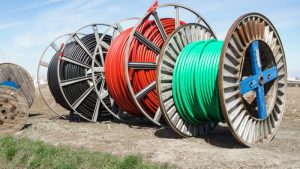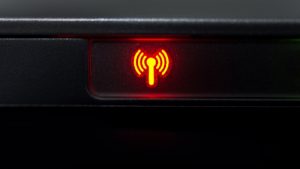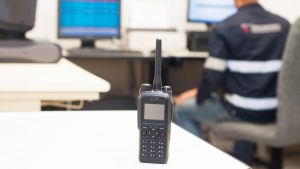President Donald Trump announced that rural broadband expansion will be included in his $1 trillion infrastructure package, which Trump said will be released “very shortly.” The increased funding for rural broadband expansion is needed. According to FCC data, only 55 percent of rural residents have access to downloads faster than 25 megabits per second, compared to 94 percent in urban areas.
The Federal Communications Commission last week approved guidelines it will use to evaluate network proposals for states that want to opt out of FirstNet, the wireless broadband public safety network that AT&T is developing. AT&T was awarded the $6.5 billion contract earlier this year.
AT&T was awarded a $6.5 billion contract to build and operate the nationwide network FirstNet. However, the legislation that authorizes FirstNet also authorizes a state to develop its own alternative on the spectrum carved out for the network, as long as the alternative is interoperable with the FirstNet core.
The Future of Privacy Forum said institutions must be established to govern the handling of individuals’ data in the era of smart cities.
The Federal Communications Commission voted to return $170 million to New York state to expand broadband deployment in underserved areas.
The National Institute of Standards and Technology announced a $30 million grant for broadband technology research and development for first responders.
County and local organizations can use the data displayed on the Federal Communication Commission’s Connect2Health map to understand what counties need the most health and broadband assistance and what policies could be created to improve health care and Internet access in specific areas.
The Federal Communications Commission should consult with tribal leaders and enact a tribal priority for spectrum allocation, according to Loris Taylor, president and chief executive officer of Native Public Media. Forty-one percent of Americans living on tribal lands lack access to broadband compared to 6 percent of total Americans, according to the FCC.
The Federal Communications Commission issued a plan to provide Alaskan broadband carriers with fixed amounts of support over the next 10 years to provide Internet to all parts of Alaska, despite dissent from commissioners.
The E-Rate program, which has provided $25 billion in subsidies since 1996 to schools from the Federal government for broadband, internal wiring, and networking equipment, hasn’t correlated with increased test scores among students in North Carolina, a recent study shows.













